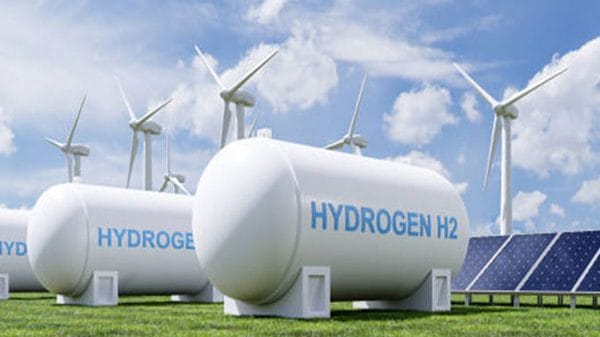Thank you dear subscribers, we are overwhelmed with your response.
Your Turn is a unique section from ThePrint featuring points of view from its subscribers. If you are a subscriber, have a point of view, please send it to us. If not, do subscribe here: https://theprint.in/subscribe/
The global shift towards renewable energy has positioned green hydrogen as a key solution to climate change, produced through renewable sources like solar and wind as a cleaner alternative to fossil fuels. African nations, with their abundant renewable resources, are increasingly targeted for green hydrogen production. However, while promises of economic growth and climate leadership are made, significant concerns arise, extending beyond environmental impacts to social, economic, and geopolitical challenges.
A critical issue with green hydrogen projects in Africa is their export-oriented nature. Most hydrogen produced is destined for wealthier nations, mainly in Europe, rather than addressing local energy needs. Namibia’s Southern Corridor Development Initiative, heavily supported by Germany, is focused on hydrogen exports, and similar projects in South Africa and Morocco follow this pattern. This dynamic perpetuates Africa’s historical role as a resource supplier to wealthier nations, reaping little benefit for local populations.
This is especially concerning in a continent where over 600 million people still lack access to electricity. Green hydrogen projects, rather than reducing energy poverty, are designed for export, leaving African communities without significant gains. Countries like Namibia, South Africa, and Morocco continue to prioritize foreign markets over local energy needs.
Green hydrogen production also demands vast amounts of land, water, and renewable energy—resources already scarce in many African regions. Electrolysis, the process used to produce hydrogen, is water-intensive, raising concerns about its impact on water-scarce countries like Namibia. The large-scale infrastructure required, such as solar farms and wind turbines, leads to the displacement of local communities, loss of agricultural land, and disruption of livelihoods, mirroring historical land appropriation practices where foreign investors profit at locals’ expense.
While these projects generate profits for foreign investors and corporations, local populations often see little benefit. The high costs of green hydrogen production concentrate wealth among a small elite, worsening the gap between rich and poor. Environmental degradation, such as water shortages, land displacement, and biodiversity loss, disproportionately affects the poorest, worsening inequality.
Moreover, there is little focus on developing a local hydrogen economy in Africa. Without investment in local industries, such as manufacturing electrolyzers or building hydrogen storage facilities, African nations risk remaining suppliers of raw materials, dependent on foreign technology and expertise. The lack of local capacity-building prevents the promised jobs and economic opportunities from reaching those who need them most.
The financing model for green hydrogen in Africa also poses challenges. Catalytic financing, which involves small initial investments to spur larger follow-up investments, is promoted as a way to kick-start Africa’s hydrogen economy. However, medium-sized local firms often struggle to access the necessary capital, limiting the development of industries that could support a local hydrogen economy.
Finally, large-scale green hydrogen projects threaten Africa’s rich biodiversity. The construction of renewable energy infrastructure encroaches on natural habitats, endangering species and undermining conservation efforts. Africa’s ecosystems, already under pressure from climate change and deforestation, face further risk. Additionally, the environmental costs of transporting hydrogen to Europe, whether by pipelines or shipping, must be considered.
For green hydrogen to truly benefit Africa, a fundamental shift is needed—one that prioritizes local energy access, ensures equitable distribution of benefits, and protects natural resources. Without this, green hydrogen risks becoming another chapter in Africa’s long history of exploitation under the guise of sustainability. Currently, green hydrogen is not the solution Africa needs.
These pieces are being published as they have been received – they have not been edited/fact-checked by ThePrint.


